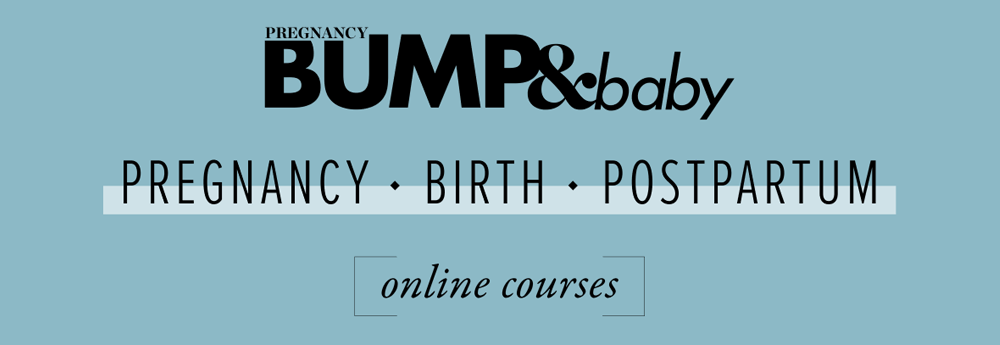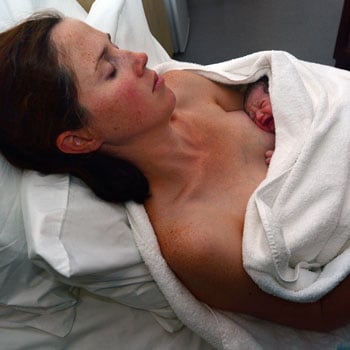
Watching the number on the scale go up while you’re pregnant is natural– but it’s important to understand how much extra you really need to eat in order to stay healthy, explains nutritionist Jessica Giljam-Brown.
The weight gained in pregnancy is feared by some and used as an excuse to “eat for two” for others. It is essential to gain weight in order to have a healthy pregnancy, but gaining too much or not enough can have a negative effect on both you and baby. The key to maintaining a healthy weight during your pregnancy is to understand how much extra you really need to eat to support a healthy pregnancy.
Where’s the weight going?
As you see the numbers on the scale going up each month, you need to keep in mind that only a small percentage of this is new body fat. Your body is working extremely hard to grow a baby and the surrounding organs and systems needed to support this new life.
The average weight gain in a pregnancy is about 12-14kg. The baby makes up 3-4kg of this, followed by a further 3.5kg in fat stores which are laid down to ensure you have enough energy to support breastfeeding. The rest of the weight is due to the placenta (0.5kg), the uterus (1.5kg), amniotic uid and uid retention in the body (2.5kg), extra breast tissue (0.5kg), and increased blood volume (1.5kg).
If you are underweight pre-pregnancy, then you can expect to gain a little more. This is your body’s way of compensating and making sure you have the necessary energy stores to support pregnancy and breastfeeding. If you fall into the overweight or obese category, then you are expected to gain a little less, as you already have the energy stores needed for pregnancy.
When will I gain the most weight?
You can expect to gain very little weight, only 500g-3kg, in the first 16 weeks of your pregnancy. Some women may find that due to morning sickness they actually lose weight during this time. This is common and your body will compensate for this loss during the next stage of your pregnancy. At around 16 weeks, you will notice a growth spurt and will gain about 0.5kg a week up until approximately week 32. Your weight gain will slow down as you reach the end of your pregnancy, with very little weight gain in the last four to six weeks.
Tip: Snack well
Try pre-portioning and packing a lunch box of healthy snacks which you can eat during the day. Remember that you only need the equivalent of one or two extra snacks’ worth of kilojoules each day during pregnancy.
How much weight should I be gaining?
This chart can help guide you as to how much weight you should gain for your body type.
| Early pregnancy BMI (KG/M2) | Total weight gain range |
| Underweight (<18.5) | 12.5kg – 18kg |
| Healthy weight (18.5 – 24.9) | 11.5kg – 16kg |
| Overweight (25 -29.9) | 7kg – 11.5kg |
| Obese (>30) | 5kg – 9kg |
Are there complications if my weight gain is not optimal?
Your primary care provider will use your weight throughout your pregnancy as a guide to how the rest of your health might be. If too much weight is gained throughout the pregnancy, you are putting yourself and baby at risk of complications such as gestational diabetes, preeclampsia, large birth weight, and high blood pressure, as well as a higher risk of post-pregnancy obesity.
Gaining too little weight during pregnancy leads to just as many complications. If you and the baby are not getting enough energy (kilojoules), your baby won’t be getting the nutrients it needs to grow, often resulting in a low birth weight and early birth. You may also nd that you struggle with fatigue and dizziness during your pregnancy and diffculty breastfeeding post-birth.
How much should I be eating?
Your pregnancy diet should be made up of nutrient-dense real food. You’re growing a whole human being, and this process requires massive amounts of vitamins, minerals, fat, protein, and energy.
The best way to give your baby what it needs to grow is to eat a diet made up of nutrient-dense, unprocessed food. Lots of fruit and vegetables, whole grains and legumes, nuts, seeds, oily sh, and some lean meat and dairy if you eat animal products. Try to avoid as many processed foods as possible. They are what are called “empty calories”; they provide small amounts of nutrients but lots of kilojoules (energy) – this is what will sabotage your efforts to maintain a healthy pregnancy weight.
During the first 16 weeks of your pregnancy, you can continue eating a normal, healthy diet; there is no need to intentionally increase your food intake. After week 16 until week 32, your body needs approximately an extra 1255-1464kJ (300-350cal) per day, this equates to an extra snack each day. In the last 8 to 10 weeks, you need an extra 1674-1883kJ (400-450cal) per day. This can be done by adding in two medium-sized snacks, or one extra meal – an extra afternoon meal works well for many women.
The demand for all nutrients increases during pregnancy, so when choosing your meals and snacks, remember that it’s more important to choose quality food over a large quantity of food. Nutrients which are especially important in pregnancy are protein, omega-3 fatty acids, iron, folate, iodine, and calcium. It’s a great idea to focus your extra snacks or meals around these nutrients as they are needed in much higher quantities than pre-pregnancy.
Another important way in which to encourage a healthy weight during pregnancy is to continue to exercise. After the rst trimester, many women nd that their regular exercise has become uncomfortable. Instead of stopping exercise altogether, try to change the type of movement you do. Walking, swimming, yoga, pilates, cycling, dancing, and using light weights are all great options to help keep you t and active. Exercise has a positive effect on your mood and helps to prepare your body for childbirth. If you keep up exercise four to seven times a week, it’ll be much easier to return to your regular exercise routine and pre- pregnancy weight post-birth.
Pregnancy-friendly snacks and meals
Weeks 16-32
Extra snack ideas
- Peanut butter or hummus on two slices of whole grain toast
- 2 hard boiled eggs and a cup of carrot sticks
- 1 cup of full-fat natural yoghurt with 1 cup of fruit
- 1 cup of chia seed pudding l 1 medium apple with 2 tbsp of nut butter for dipping
- Green smoothie made with milk or yoghurt, spinach, banana, and frozen berries
- Whole grain muesli with milk
Weeks 32-40
Extra meal ideas
- Slice of roast vegetable frittata made with eggs, roast sweet potato, and capsicum
- Oatmeal made with dried apricots and walnuts
- Avocado on whole grain toast with a poached egg
- Sardines and salad
- 1 medium baked sweet potato with 1⁄2 cup of guacamole
- 2 cups of homemade vegetable-based soup with pumpkin seeds on top
- Steak or salmon and salad
BUMP&baby
BUMP & baby is New Zealand’s only magazine for pregnancy and early babyhood. Our team of mums and mums-to-be understand what it’s like to be pregnant in this connected age, and that’s why BUMP & Baby online is geared toward what pregnant women and new mums really want to know.
Other articles of interest
Giving birth naturally — your way
With all of the birth techniques available, how do you know which one is right for you?
Beyond the baby blues
It’s normal to feel a bit down following childbirth. But what if your feelings don’t improve, or you aren’t coping? You may have postnatal depression, also known as PND







